Instilling Ethics
Instilling Ethics
Norma Thompson,
Editor

ROWMAN & LITTLEFIELD PUBLISHERS, INC.
Published in the United States of America
by Rowman & Littlefield Publishers, Inc.
4720 Boston Way, Lanham, Maryland 20706
http://www.rowmanlittlefield.com
12 Hids Copse Road
Cumnor Hill, Oxford OX2 9JJ, England
Copyright 2000 by Rowman & Littlefield Publishers, Inc.
All rights reserved. No part of this publication may be reproduced, stored in a retrieval system, or transmitted in any form or by any means, electronic, mechanical, photocopying, recording, or otherwise, without the prior permission of the publisher.
British Library Cataloguing in Publication Information Available
Library of Congress Cataloging-in-Publication Data
Instilling ethics / edited by Norma Thompson.
p. cm
Includes bibliographical references and index.
ISBN 978-0-8476-9745-8
1. Ethics. I. Thompson, Norma, 1959
BJ1012 .I67 2000
170dc21
99-056842
Printed in the United States of America
 The paper used in this publication meets the minimum requirements of American National Standard for Information SciencesPermanence of Paper for Printed Library Materials, ANSI/NISO Z.39.481992.
The paper used in this publication meets the minimum requirements of American National Standard for Information SciencesPermanence of Paper for Printed Library Materials, ANSI/NISO Z.39.481992.
Contents
Stephen G. Salkever
Cary J. Nederman
Jeffrey Macy
Vickie B. Sullivan
Clifford Orwin
Susan Neiman
Dwight David Allman
Stephen R. L. Clark
Stephen K. White
Louis A. Ruprecht Jr.
Glenn Harlan Reynolds
Carroll William Westfall
Michael J. Fischer
Stephanie A. Nelson
Walter Nicgorski
Preface
This accessible yet deeply scholarly book casts fresh light on a major preoccupation of our time, the confused and ambiguous subject of ethics. Fourteen noted scholars examine the sources, distortions, uses, and future of ethics. The book not only provides a wide variety in style, substance, and angle of view but also uniquely forms a coherent whole. Taken together, these fourteen chapters, with an afterword by a distinguished philosophical scholar, stand as a renewed definition and guide through the thicket of contemporary ethics.
We think about ethics as we do because of Aristotles Ethics and Politics. Aristotles core project, as set out by Stephen Salkever, is to develop a kind of practical rationality. This is not to try to achieve some theoretical certainty but to supply us with a set of questions and standards to use in examining our own characters and the regimes of government in which we act. Indeed, the aim of Aristotle is action rather than knowledge. In this sense we seek the ignorance of Socrates, which is really a kind of knowledge of the elusive character of the whole of life. This early chapter helps make clear that what we call ethics is grounded in centuries-old effort. Aristotle helps us recognize that discerning the right thing to do in a difficult situation may be very hard to do. Salkever highlights two Aristotelian themes: the absolute necessity of instilling ethical habits in the young, and then the developing of a way of inquiry that enables us to be critically aware of and, as far as possible, in control of our character. What is it that makes us what we are? It is the ability to think through and discuss options and then to act. Although we lack the solace of a foundationalist first premise from which to deduce ethical rules, we can achieve a foundation for ethical conduct in widely diverging contexts.
In a striking example, Salkever cites Aristotles ethics in mounting a critique of the most widely respected, reputable, and accepted ethos of Athens: the values expressed in Pericles Funeral Oration, undoubtedly the most praised and famed speech in ancient history. Those values, stated positively as the virtue of manliness in a life of great deeds crowned by honor, can be easily transformed into militarism.
This transformation of values into militarism was exemplified in Roman form. Constant warfare on behalf of the patria was the quintessence of republican virtue in Rome. In his chapter on Cicero, the lawyer-politician-philosopher who represents the pinnacle of classical republican experience, Cary Nederman points out that Cicero does not conceive of love of country in an essentially militaristic fashion. For Cicero, discussion is at the core of civic virtue. Through rational and linguistic capacities, people can govern themselves without recourse to violence: Nature through reason reconciles man with man by means of speech. In place of militarism Cicero proposes the vexed concept of statesmanship. Nederman defines this in Ciceronian terms as work for the welfare of the republic, where such welfare is understood in a philosophically informed manner.
The purpose of the Ciceronian republic was not to improve the characters of its members but to ensure their submission to wise governors. Jeffrey Macy takes on this theme from a different direction in his commentary on medieval and Islamic philosophers attitudes on ethics. For the great mass of the population, ethics can be instilled only by the inculcation of habits conducive to a peaceful social order. Ethics for the multitude cannot therefore be true virtue; it is only a means to a desired political and social end.
For the few philosophers inclined and able to take up higher aims, ethics also is a means, Macy says, but a means toward human perfection. An ethical regimen serves to neutralize the passions so that one can concentrate on theoretical-rational virtue. For Maimonides, true human perfection is acquisition of the rational virtues. Medieval and Islamic philosophers, Macy says, found the essence of human perfection to be theoretical-rational contemplation, culminating in the attainment of knowledge of first principles based on the attainments of human reason. Fascinatingly, Macy asserts that religions, and the theologians who propound them, stand above and beyond ethics. The acts of suicide bombers seeking martyrdom in the name of God, and those of the sisters of mercy seeking universal salvation, have no need for ethics.
A dramatic turnabout comes with Machiavellis bludgeoning of the classical and Christian traditions, the subject of Vickie Sullivans examination. To Machiavelli, ancient Greek philosophers and medieval religious thinkers are contemptible, because their teachings vitiate any attempt on the part of human beings to defend their homeland. For Machiavelli, what benefits the city (that is, the city-state of Renaissance Italy) is virtue; what harms it is vice. Such great works of the Western tradition as Platos Republic and Augustines City of God are anathema to politics and enfeebling to the body politic. Sullivan describes Machiavellis works as a revolution in thought so far-reaching that is has profoundly affected politics and philosophy to our day. The states first interest is the maintenance and acquisition of power, Machiavelli says. Foreign policy takes primacy, becoming high politics and dominating the low politics of domestic policy. The people, in their masses, have vast capacities to provide the means and manpower for the advancement of the state.
Machiavelli provides a powerful, and troubling, interpretation of a major theme of this book and of political philosophy itself. In stark contrast to Aristotles praise of the
Next page

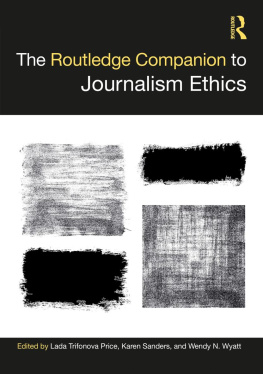
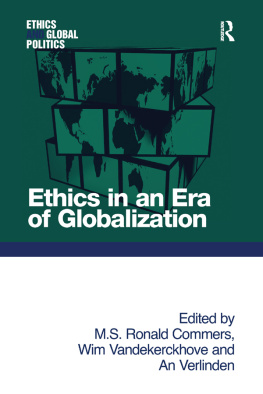

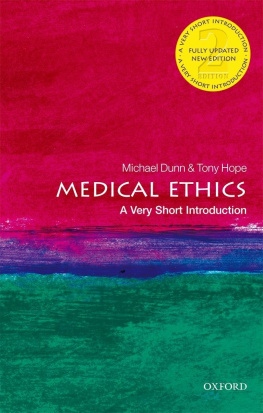

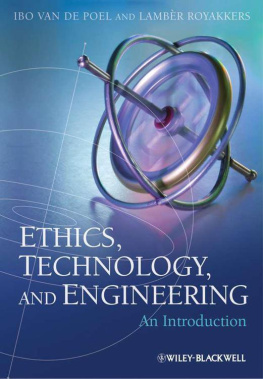
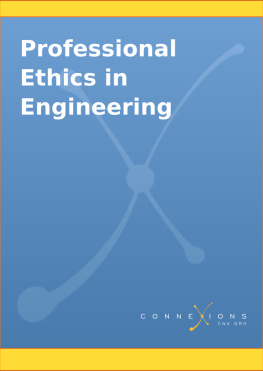



 The paper used in this publication meets the minimum requirements of American National Standard for Information SciencesPermanence of Paper for Printed Library Materials, ANSI/NISO Z.39.481992.
The paper used in this publication meets the minimum requirements of American National Standard for Information SciencesPermanence of Paper for Printed Library Materials, ANSI/NISO Z.39.481992.